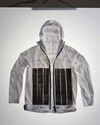
No individual species alive today was around during the age of the dinosaurs, between 24666 million years ago. But there are several groups of species currently roaming the Earth who can trace their roots back to ancient ancestors that would have looked remarkably similar.
For these organisms - so-called 'living fossils' - time has almost stood still. That's not to say they're entirely unchanged, however; their DNA is distinct and has been put through the evolutionary wringer many times.
These living fossils give us a glimpse into what life was like millions of years ago. They also show us just how resilient some groups have been to calamitous, prehistoric events that have consigned others - such as the dinosaurs, for example - to extinction.
CROCODILIANS
There are more than two dozen species of crocodilians alive today, including true crocodiles, alligators, caimans and gharials. These extant crocodilians share a common ancestor that lived alongside the dinosaurs in the Late Cretaceous, about 80 million years ago (Mya).This common ancestor looked a lot like today's crocodilians and, like them, spent most of its time hanging out at the water's edge, soaking up the sun and waiting for unsuspecting prey to enter its domain.
While they may look unchanged after nearly 80 million years, today's crocodilians are a far cry from their distant ancestors, which first appeared in the Late Triassic, around 235 Mya. These extinct, crocodilian relatives were considerably more diverse than their modern descendants. Some, like Litargosuchus, were built like whippets and pursued small prey on land much like wolves, while others, such as Sarcosuchus, (illustrated above left) grew to colossal lengths of up to 12m (almost 40ft) and snatched elephant-sized dinosaurs from riverbanks.
Denne historien er fra September 2024-utgaven av BBC Science Focus.
Start din 7-dagers gratis prøveperiode på Magzter GOLD for å få tilgang til tusenvis av utvalgte premiumhistorier og 9000+ magasiner og aviser.
Allerede abonnent ? Logg på
Denne historien er fra September 2024-utgaven av BBC Science Focus.
Start din 7-dagers gratis prøveperiode på Magzter GOLD for å få tilgang til tusenvis av utvalgte premiumhistorier og 9000+ magasiner og aviser.
Allerede abonnent? Logg på

NOW YOU SEE ME, NOW YOU DON'T
Scientists around the world are working on ways to hide us from sight. But how close are we to developing tech that could make us invisible?

UNCORKED POTENTIAL
How much good can ditching drink for a month really do? Answer: a whole lot. In fact, science shows even short-term abstinence could unlock a cocktail of lasting benefits

Scientists discover when humans and dogs became friends
The relationship spans thousands of years, but experts might have pinpointed the first connection

Why it's so hard to kick a gambling addiction
We now know that gambling can be as addictive as drugs, but there are factors that can make it even harder to quit

How much could Ozempic change our world?
The weight-loss drug has made headlines and broken sales records, but what does it mean for our future?

WHY DOES DRINKING ALCOHOL MAKE IT SO MUCH HARDER TO LOSE WEIGHT?
While enjoying the occasional glass of wine or pint of beer may seem harmless, regular or excessive alcohol consumption can significantly hinder your weight-loss journey for a few reasons:

Why do so many New Year's resolutions fail?
Establishing positive new habits is hard at any time of year. But there are ways to stop your attempts ending in failure

'Extreme' solar radiation storm could hit Earth
Sun-like stars may have tantrums far more frequently than we thought

HOW CAN I BANISH THE JANUARY BLUES?
Dark mornings, long chilly evenings and short days; many people find January tough.

Neutrinos are getting in the way of dark matter detection
These troublesome particles are difficult to detect, but they're starting to show up in places where they're not wanted
